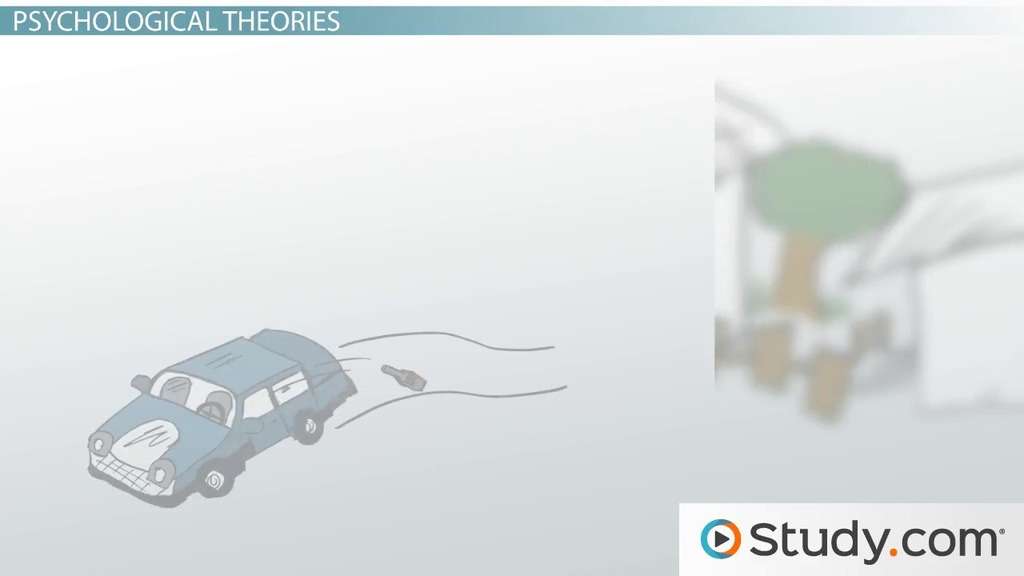Introduction
Psychiatry and psychology can explain crime, account for criminal behavior, and treat the criminal. Historically psychiatry and psychology have been intertwined with the development of law. Medicine, and its later subdiscipline, psychiatry, was particularly involved in helping to advance the concepts of guilty intentions (mens rea) and responsibility for the criminal act itself (actus reus), thereby refining the insanity and diminished responsibility defenses. As knowledge developed and the law became more sophisticated, distinctions were made between those criminals with a mental illness or those who were born with a mental impairment (now termed “learning disability”). Psychology, in particular through its work on personality disorder, introduced the idea that psychopathic behaviors that were aggressive or seriously antisocial while carried out rationally nonetheless contributed to diminished responsibility. Dominant among the preoccupations of psychiatry has been diagnosing and classifying mental illness while psychology has a wider brief, engaging in aspects of the investigation and prosecution of crime as well as searching for causes and treating offenders. The questions for psychiatry have centered on how mental incapacities come about (organically, genetically, constitutionally, dispositionally) and how to assess or measure their symptoms to help decide whether an individual acted rationally or irrationally in order to determine what to do with them (imprison or hospitalize). As medical experts, psychiatrists have assisted the courts where the insanity defense has been argued. In terms of treatments, should such a defense prevail, early interventions were segregation from other prisoners, physical restraint. Later, surgical treatments and the inducing of shock prevailed, while in the 20th century the discovery of psychotropic drugs served as a great breakthrough. Psychology emerged from a philosophical tradition likewise in the 19th century. Psychologists have only lately been employed to provide expert evidence in the courts. As psychology’s focus is more toward behavior and personality (and also deals with non-mentally disordered offenders), their role in courts often have to do with competency assessments while interventions tended to be designed to improve reasoning, social skills, or adjustments in thinking in order to facilitate re-incorporation into society. Psychologists also were instrumental in developing psychometric and other measures to predict risk of future criminal behaviors or recidivism. Both psychiatry and psychology have broader remits than purely an interest in crime, thus the term “forensic,” meaning “of the courts” identifies that particular concern such that forensic psychiatry and forensic psychology have developed as specialisms within their parent disciplines. A theme of this bibliography is to reflect the differences in approach between psychiatry and psychology. In doing so reference will be made to pioneers, key cases, and also the role played by institutions, notably Bedlam, the York Retreat, and Broadmoor, in the development of theory and practice.
Psychological Theories
When Amy goes to visit Rory, she’s reminded of all the differences between them. He’s in jail for a violent crime and doesn’t even feel sorry. It’s like he doesn’t really understand that what he did was wrong.
Psychological theories of crime say that criminal behavior is a result of individual differences in thinking processes. There are many different psychological theories, but they all believe that it is the person’s thoughts and feelings that dictate their actions. As such, problems in thinking can lead to criminal behavior. Take Rory, for example, he doesn’t believe that what he did was wrong, which was what led him to act out in the first place.
There are four basic ideas when it comes to psychological theories of crime. These general assumptions are that crime is a result of:
1. Failures in psychological development
Some people run into trouble because they didn’t develop, or grow, the way that others normally do. For example, Rory has an underdeveloped conscience. Whereas Amy hears a little voice inside her reminding her what is right and wrong, Rory just does what he wants and doesn’t think about right or wrong. This is an example of what happens when someone has an issue with psychological development.
2. Learned behaviors of aggression and violence
If someone is surrounded by violence and aggression, they are more likely to become violent and aggressive themselves, because they have learned that those behaviors are okay. For example, Rory comes from a very abusive household, and his violent parents taught him that it’s normal to work out your frustrations by being violent against others.
3. Inherent personality traits
There are some characteristics that criminals tend to share with each other, and some psychologists believe that there are certain personality traits that predispose someone towards criminal behavior. For example, even as a baby, Rory liked to seek out dangerous and exciting activities. Amy is happy to stay at home with a book; that’s enough excitement for her. But, Rory likes danger, which could lead him to act recklessly and perhaps in criminal ways.
4. Relationship of criminality to mental illness
Some people with psychological disorders end up committing crimes. While this isn’t the case for all people with mental illness, there is a higher-than-normal percentage of criminals with mental illness. For example, Rory has been diagnosed with a personality disorder, which means that he feels less empathy than other people.
All of these psychological factors could have an effect on someone like Rory, who then ends up a criminal.
Criticisms
Amy is wondering if psychological theories of crime could explain why her friend Rory ended up a criminal, whereas she ended up a law-abiding citizen. There certainly seems to be a lot of psychological differences between the two of them. Could that explain the differences in their behavior?
Though there is much support for psychological theories, there are also some criticisms. For one thing, opponents point out that psychological theories can’t explain why some people are criminals and others aren’t. For example, not everyone with mental illness ends up a criminal, and not everyone who was abused ends up a criminal. But, Rory, who was abused and has a psychological disorder, ended up a criminal. Psychological theories can’t tell us why that is true.
Another issue with psychological theories of crime is that they are difficult to test. Amy can’t open up Rory’s head and see his psychological issues carved on his brain. All a person can see are the symptoms of a psychological problem, not the underlying issue. This could lead to misdiagnoses and even lead to some people faking psychological disorders in order to get a lighter sentence.
Finally, treatment plans based on psychological theories are not always effective. There is still a high rate of criminals who commit crimes even after being treated for psychological issues. Thus, even though psychological theories might be correct in judging why people become criminals, they haven’t yet figured out how to prevent people from becoming or continuing to be criminals.
Lesson Summary
Criminology is the study of crime and punishment. Psychological theories of crime look at how differences in people’s thoughts and feelings can lead to criminal behavior. There are four basic aspects of psychological theories of crime, which say that crime is a result of failures in psychological development, learned behaviors of aggression and violence, inherent personality traits, and the relationship of criminality to mental illness. Though there is a lot of support for psychological theories of crime, there are also some criticisms, including the idea that they can’t explain why some people are criminals and others aren’t, even when they have the same issues; they are difficult to test; and that treatment plans based on psychological theories are not always effective.
Learning Outcomes
When you finish watching the video, you should understand how to:
- Recall the definition of criminology
- List the four basic psychological theories of crime
- Discuss the criticisms of the psychological theories of crime
Presentation on theme: “Psychological and Psychiatric Foundations of Criminal Behavior”— Presentation transcript:
1 Psychological and Psychiatric Foundations of Criminal Behavior 
2 QUESTION In what way would psychological theories differ from sociological theories? 
3 EARLY PSYCHOLOGICAL THEORIES
Conditioned Behavior plus Psychopathology 
4 Psychological Theories of Crime Causation
Fundamental Assumptions Include: The individual is the primary unit of analysis. Personality is the major motivational element within individuals. Crimes result from abnormal, dysfunctional, or inappropriate mental processes within the personality. Normality is generally defined by social consensus. 
5 Psychological Theories of Crime Causation (cont’d)
Criminal behavior may be purposeful for the individual insofar as it addresses certain felt needs. Defective, or abnormal, mental processes may have a variety of causes, i.e., a diseased mind, inappropriate learning or improper conditioning, the emulation of inappropriate role models, and adjustment to inner conflicts. 
6 QUESTION Does society have a responsibility to treat offender’s diagnosed with a personality disorder, i.e., psychopathic or psychotic behavior? If so, for how long? 
7 FORENSIC PSYCHOLOGY or PSYCHIATRIC CRIMINOLOGY
Forensic psychology or criminal psychology is the application of science and the profession of psychology to questions and issues relating to law and the legal system. (Psychology vs. Psychiatry) Forensic psychology is concerned with a complex set of drives and motives operating within the personality that ultimately determines behavior (both biological and psychological urges). Key Concepts: Psychopath, sociopath, antisocial and asocial personality. 
8 Psychopaths are characteristically:
Psychopathy Refers to people who repeatedly commit criminal acts for which they feel little or no remorse. Psychopaths are characteristically: Superficial in their interpersonal relationships. Lack empathy, selfish, and irresponsible. Blame others for their misfortunes and offer excuses for their behavior. Deceitful and manipulative – yet charming and glib at the same time. Example: Ted Bundy 
9 According to recent studies, the best predictor of violence and
recidivism, is psychopathy. The concept of psychopathy has repeatedly demonstrated a robust relationship to the risk of repeat criminality and violence in offender and patient populations. 
10 Psychopath/Sociopath
“When we seek to explain the riddle of human conduct in general and antisocial behavior in particular, the solution must be sought in the personality.” Abrahamsen (1944). A psychopathic personality appears early in life, often in the teenage years. 
11 ANTISOCIAL PERSONALITY DISORDER
Antisocial (asocial) personality types who are basically unsocialized and whose behavior pattern brings them repeatedly into conflicts with society. The focus is on the type of behavior exhibited as opposed to the identifiable personality traits of a sociopath or psychopath. 
12 Characteristics of APD:
Incapable of significant loyalty to individuals, groups, or social values. Impulsive and irresponsible. Blames others or offers plausible rationalization for their behavior. Selfish and callous to concerns of others. Unable to feel guilt or to learn from experience and punishment. Very low tolerance to frustration and a low threshold for discharge of aggression, including violence. Inflated self-appraisal, glib, and superficial charm. 
13 PSYCHOANALYTIC PERSPECTIVE
The psychoanalytic perspective was developed by Freud and emphasizes the role of personality in human behavior and which sees deviant behavior as the result of dysfunctional personalities. Significant inadequacies may result in full-blown mental illness, which in itself can be a direct cause of crime. Key Concepts: Personality (Id, ego, and superego), neurosis, psychosis, sublimation, Thanatos, psychosis, schizophrenia. 
14 Freudian Terms The id is based on the pleasure principle (primitive instincts). The ego is based on the reality principle. The superego is based on the ethical principle. Sublimation is the psychological process whereby one item of consciousness comes to be be symbolically substituted for another. Thanatos is based on the existence of a death instinct. Neurosis is a minor form of mental illness which may also lead to crime. Neurotic individuals are well in touch with reality but many find themselves anxious, fearful of certain situations, or unable to help themselves in others (compulsive behavior). 
15 The Psychotic Offender
Psychotic people are out of touch with reality in some fundamental way. They may suffer from hallucinations, delusions, or other breaks with reality. Psychosis is more severe than neurosis. Psychotics have also been classified as schizophrenic or paranoid schizophrenic. 
16 Other Types of Psychological Perspectives
Frustration- Aggression Theory: Frustration is a natural consequence of living and a root cause of crime. Aggressive behavior is a response to frustration. Modeling Theory: People learn how to behave by modeling themselves after others whom they have the opportunity to observe. Behavior Theory: Individual behavior which is rewarded will increase in frequency, while that which is punished will decrease. Self-Control Theory: The root cause of crime can be found in a person’s inability to exercise socially appropriate controls over the self. 
17 Predictive Schemes A primary goal of psychological assessment
is to attempt to make predictions about future behavior based on some set of factors that are combined in some fashion into a predictive scheme. 
18 Prediction of future criminal conduct
is an essential element in many of the decisions rendered throughout our criminal justice system. Bail Punishment Parole 
19 Risk Assessment The process of conceptualizing various
hazards in order to make judgments about their likelihood and the need for various preventative measures. The concept of risk includes: The nature of, the likelihood of, the frequency of, the seriousness of, and the imminence of. 
20 Types of Predictive Schemes
Clinical prediction: The prediction is based on clinical experience and judgment. Actuarial prediction: The prediction is based on a statistical scheme or formula. Anamnestic prediction: The prediction is based on a specific analysis of how a particular person has acted in the past in similar situations. 
21 Questions: In the field of criminal justice,
what are psychiatrists, psychologists, and researchers trying to predict? How would this relate to the crimes of domestic violence, child abuse, suicide, and the sexual offender? 
22 Prediction of Sexual Offending
The task is to assess a sex offender’s degree of risk to the community. Why? Most jurisdictions have laws governing sex offenders – for example, if there is a “likelihood” of committing a similar offense in the future, then certain procedures such as registration with the police or community takes place. 
23 Prediction of Sexual Offending
Convicted rapist reconviction rate:* 22.8% (10%-36%). Child molesters reconviction rate:* 20.4% (4%-38%). Homosexual child molesters reconviction rate:* double that of heterosexual child molesters (18.3%-35.2%). Incest child molesters reconviction rate:* 8.5%. * Based on follow-up studies (Quinsey, Lalumiere, Rice & Harris, 1995). Weighted averages. Measured only those offenses that were discovered. 
24 Despite the “moderate” predictive power
that psychologists and psychiatrists display; and despite the warnings from mental health professionals that predictions may be problematic, the courts often ignore the warnings and at times invite such predictions. (Barefoot v. Estell, 1983) 
25 A method used by behavioral scientists
Criminal Profiling A method used by behavioral scientists and the police to narrow the field of criminal suspects who possess certain behavioral and personality characteristics that are revealed by the way a crime was committed. 
26 Criminal Investigative Analysis
(Profiling) Does Not Identify a Specific Suspect, It Formulates an Initial Description Of the Most Likely Suspect. 
27 QUESTION: How might forensic psychology
assist social policy in the future? 




